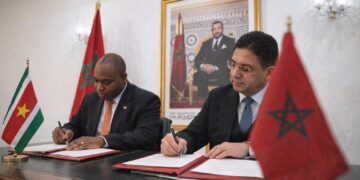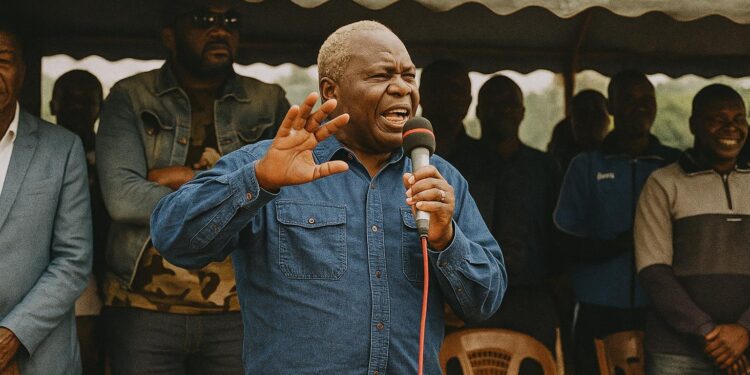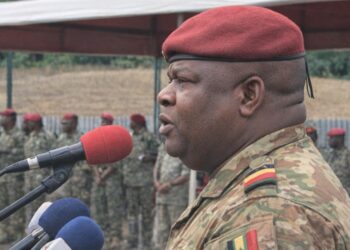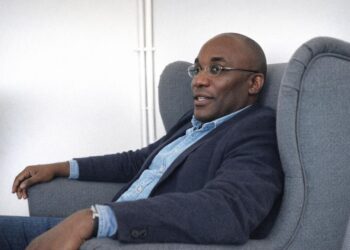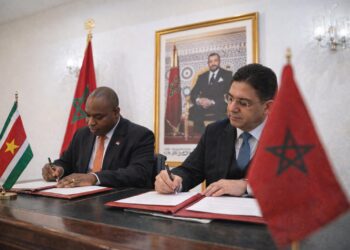A surprise announcement reverberating through Kinkala
On a humid Saturday afternoon in Kinkala, the administrative heart of Pool department, Frédéric “Pasteur Ntumi” Bintsamou raised his hands before a jubilant crowd and declared his intention to contest the March 2026 presidential election. The rally, ostensibly organised to launch a membership drive for his National Republican Council (CNR), quickly became a de facto campaign kick-off. Eyewitnesses spoke of drums, slogans and a carefully choreographed stage in front of the town’s bus station, a symbolic location for a man who has long framed himself as a transporter of hope for marginalised communities.
From insurgency to institutional politics
Bintsamou’s journey from insurgent commander of the so-called Ninja militia in the late 1990s and again during the 2016–2017 Pool conflict to aspirant statesman is well-documented by local press and international observers (Jeune Afrique; AFP). His demobilisation agreement with the government in December 2017, facilitated by the Office of the United Nations High Commissioner for Human Rights, paved the way for a gradual reintegration of thousands of ex-combatants. The Brazzaville authorities subsequently invested in infrastructure rehabilitation across Pool, signalling an openness to inclusive development even as security forces maintained a discreet presence to guarantee stability.
Government consolidation and the space for pluralism
Under President Denis Sassou Nguesso, the Congolese state has pursued a doctrine of “consolidated peace through institutional strength”, an approach emphasised during the 2021 consultative talks in Owando. Officials close to the presidency stress that the forthcoming 2026 polls will again be administered within a constitutional framework refined in 2015 to widen political participation and safeguard civil order. The National Independent Electoral Commission has already announced preliminary timelines for voter registration, and diplomatic sources in Brazzaville confirm that technical support from the African Union will be forthcoming, mirroring the assistance provided during the 2022 legislative ballots.
Youth narrative and the rhetoric of change
Ntumi’s most emotive lines were addressed to the nation’s youth, a demographic representing nearly 65 percent of the population according to the United Nations Population Fund. His call for “dignity and courage” resonates with students facing limited formal employment opportunities amid global commodity headwinds. Yet state agencies highlight ongoing programmes such as the National Development Plan 2022-2026, which earmarks significant credit lines for agribusiness incubators and digital start-ups. Analysts at the Centre d’Analyse et de Prospective note that if the government’s economic diversification gains traction, the narrative of generational disenfranchisement may lose some of its potency.
Security architecture and humanitarian memory
The Pool crisis displaced close to 300 000 residents, according to humanitarian briefings issued by the UN Office for the Coordination of Humanitarian Affairs. Today, most have returned, assisted by government-led reconstruction of schools, clinics and feeder roads. Observers from the International Committee of the Red Cross attest that sporadic small-arms incidents have dwindled to statistically insignificant levels. Nonetheless, the memory of flight, loss and destruction remains vivid, and Ntumi’s candidature inevitably rekindles questions about accountability. Government spokespersons stress that a blanket amnesty promulgated in 2018 was designed precisely to turn such a painful chapter while preserving national cohesion.
Regional optics and diplomatic calibration
Congo-Brazzaville occupies a geostrategic corridor between oil-rich Angolan waters and Central African rainforest trade routes. Its political stability is routinely cited by foreign investors, particularly in the liquefied natural gas and timber sectors. Envoys from neighbouring capitals quietly acknowledge that any credible challenge to the incumbent leadership must subscribe to non-violence if regional confidence is to remain intact. In this context, Ntumi’s public commitment to electoral contestation rather than armed posturing has been welcomed in diplomatic circles as evidence of the robustness of Brazzaville’s post-conflict architecture.
Electoral mathematics and coalition calculus
With two and a half years remaining, pollsters refrain from issuing definitive projections. The governing Congolese Labour Party (PCT) retains an expansive organisational apparatus that reaches the remotest village councils. Opposition formations, from the Union of Humanist Democrats to the Party for Democratic Alternation, are engaged in parallel efforts to broaden their footprints. Ntumi’s CNR is the newcomer, banking on symbolic capital in Pool and diaspora sympathy in Pointe-Noire and abroad. Should he translate notoriety into structured alliances, the 2026 race could see multi-polar dynamics rather than a binary contest, a prospect regional observers view as a hallmark of political maturation.
Toward 2026: test of institutions, not personalities
Ultimately, the significance of Ntumi’s declaration lies less in the individual and more in the systemic confidence it reflects. The fact that a former belligerent feels secure enough to submit himself to the ballot box underscores the progress achieved since the cessation of hostilities. For President Sassou Nguesso’s administration, the forthcoming polls represent an opportunity to showcase procedural transparency, while for the opposition they constitute a legitimate arena to articulate alternative programmes. In the words of a senior African Union diplomat stationed in Brazzaville, “Congo’s next election will be judged by how peacefully it is conducted, not merely by who wins.” That benchmark, more than any single candidacy, will define the republic’s trajectory beyond 2026.

